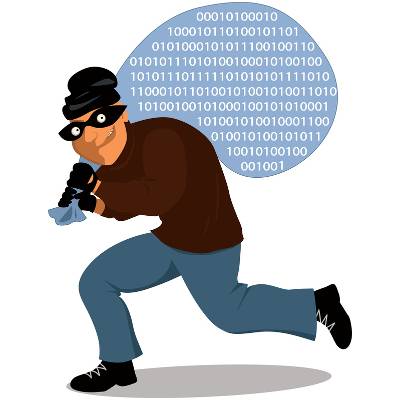SolutionOne Blog
Thieves Want Your Backup Data
 Are you aware of the value of your company's data? If you lost it all today, what would it cost your business in terms of productivity, downtime, and liability? Security precautions need to be taken in order to keep your data safe, including data backups. However, after you have a backup system in place, don't neglect the need to secure those backup files!
Are you aware of the value of your company's data? If you lost it all today, what would it cost your business in terms of productivity, downtime, and liability? Security precautions need to be taken in order to keep your data safe, including data backups. However, after you have a backup system in place, don't neglect the need to secure those backup files!
Just think, your backup has all of your data in it; especially if your backup solution employs a full system backup (meaning 100% of your data is backed up to one location). If a hacker was to locate your backup, take a copy, and successfully restore it, they could gain access to all of your data at the point of the backup. This is just as good as stealing your data right from your office. From there, they'll be able to steal files, contact information, licenses, and the identities of your employees, customers, and even yourself!
While there are several backup solutions available for businesses, some are less effective than others. Backup solutions that use external hardware as the location of the backup files are more susceptible than those that store the information digitally. A prime example of this vulnerability is using portable storage such as tape drives and external hard drives.
When tape and external hard drives become full with data backups, users typically store them with a pile of the rest of the full copies, usually on-site. The problem here lies in the fact that the security of their backed up data is only as good as the physical security of their building. Many times, securely storing these copies is an afterthought, after an already tedious process of making sure the data is backed up in the first place. These backup drives can be stored in locations such as closets or a dedicated server room shelf and are generally poorly labeled.
Hypothetically, if a burglar were to break into your office building to ransack the closet (which happens to hold your data backups), they could make a fortune selling your sensitive information to identity thieves. Or what if you had an extremely disgruntled employee who understood the value of your old external hard drive and hijacked it? They could use it as blackmail to gain leverage with your competition. All in all, if you haven't thought about comprehensive methods of securing your physical backup copies, you're risking some major liability.
On the other hand, digitally storing your backup data is a supreme solution. If managed correctly, it is a much more secure and effective method of backup for any business. Although, some easy security measures would still need to be put in place. Encrypting your files is a standard data security practice that can go a long way in keeping your data backups safe. To a hacker who managed to get ahold of the location of your backed up data, the files would read no better than a confusing stream of letters, numbers, and symbols; rendering the file worthless to them. Whenever you encrypt your data, you are in control of a encryption key in the form of a secure password that gives you access to your files the way they are supposed to be read and used.
All things considered, the best possible data backup solution is a Backup Disaster and Recovery (BDR) device. SolutionOne offers this solution to prevent malicious hackers, disgruntled employees, accidents, and disasters from robbing you of your vital company information. BDR can back up your company data to a customized off-site location with outstanding security to ensure that your files can't be easily accessed by unwanted eyes, or destroyed when your network goes down in an accident.
SolutionOne can implement a BDR solution for your business. We'll even perform a free network audit for your company to show you where and how your network is vulnerable. We can also make suggestions on what technologies can help protect your business from hacks. Don't hand your data over to hackers. Put some strong barriers up by giving SolutionOne a call today at (214) 299-8555.
Comments